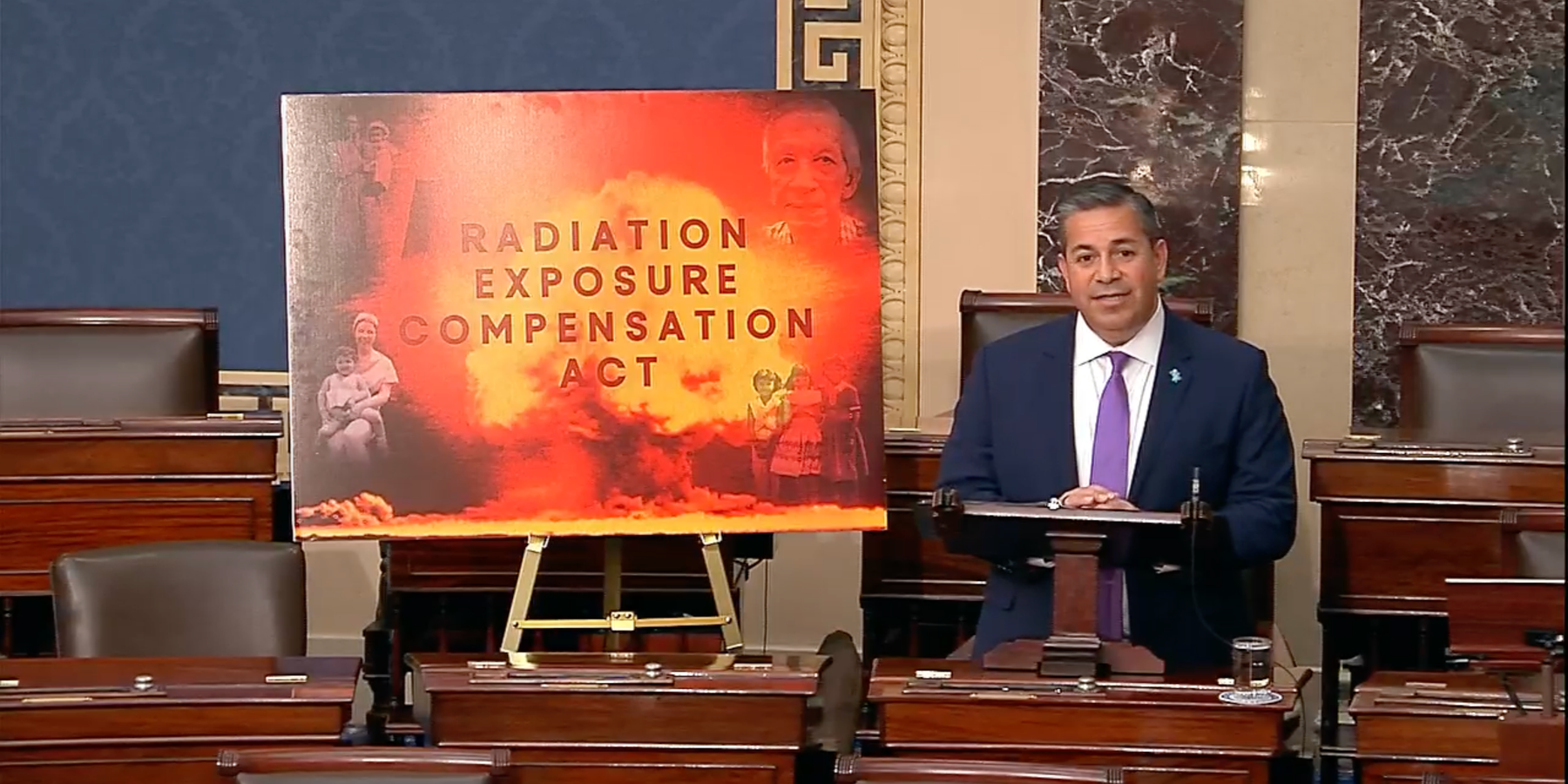The Senate passed a bill Thursday that would dramatically expand a compensation program for Americans affected by U.S. nuclear weapons testing and uranium mining.
“It is time to rebuild these communities,” argued Sen. Josh Hawley (R-Mo.), a sponsor of the bill, prior to the vote. “This isn't about some kind of welfare program. This is about doing basic justice by the working people of this nation, whom their own government has poisoned.”
The bipartisan, 69-30 vote marks the second time in the past year that the Senate has approved an expansion to the Radiation Exposure Compensation Act (RECA), which gives money and medical benefits to uranium miners and people who lived downwind of the Nevada Test Site, where the U.S. military carried out most of its nuclear testing in the 1950s and 60s.
The first RECA vote came last July, when 62 senators approved an amendment to the annual defense policy bill that expanded RECA coverage. Despite intensive lobbying from Hawley and Sen. Ben Ray Lujan (D-N.M.), congressional leadership stripped the measure from the final version of the bill following a Congressional Budget Office finding that the expansion would cost as much as $150 billion over 10 years.
The latest RECA expansion bill cut some of the benefits included in the amendment and managed to bring the price tag down to about $5 billion per year. These changes should make the proposal more likely to pass the House, where some Republicans have expressed concern about the potential costs of the expansion.
Hawley dismissed worries about the bill’s price tag, saying last week that he told Senate Majority Leader Mitch McConnell (R-Ky.) that “I didn’t hear a lot of grousing about the cost when we were voting on Ukraine funding or anything else for that matter.”
It is unclear how many Americans will be eligible for compensation if the expansion gets through the House. In New Mexico, where the first ever nuclear test took place, some victims have had more than 20 family members get radiation-related cancers. One activist told RS last year that she lost seven family members to diseases she believes are linked to nuclear testing.
President Joe Biden declared his support for the bill Wednesday. “The President believes we have a solemn obligation to address toxic exposure, especially among those who have been placed in harm’s way by the government’s actions,” according to a White House statement.
The bill would expand eligibility for “downwinders” — those who lived downwind of U.S. nuclear tests — to include victims in Idaho, Montana, New Mexico, Guam, and Colorado. It would also extend RECA to cover all of Nevada, Utah, and Arizona, as well as people living near nuclear waste sites in Missouri, Tennessee, Kentucky, and Alaska.
The vote came 11 years to the day after Tina Cordova, a leading activist of RECA expansion and a cancer survivor, lost her father to a cancer that she believes was caused by the “Trinity Test” — the first ever nuclear explosion, recently depicted in the blockbuster film Oppenheimer.
“The cancer metastasized to his neck and throat before becoming inoperable and consuming his body,” said Sen. Lujan of New Mexico during the debate prior to today’s vote. Cordova “made it her life's mission to fight for justice [and] compensation for her family and the thousands of victims of our nation's nuclear weapons program,” the lawmaker added.
Cordova, who will be Lujan’s guest at Thursday’s State of the Union address, told RS in December that the decision to strip RECA expansion from last year’s defense policy bill was “shockingly immoral.”
“Today, the Senate took another step forward in the long journey to delivering justice to Americans suffering from radiation exposure,” Lujan said in a statement after the vote. “Let's be clear: the fight is not over. I urge the House to pass RECA without delay and get help to families who are deeply suffering.”
















